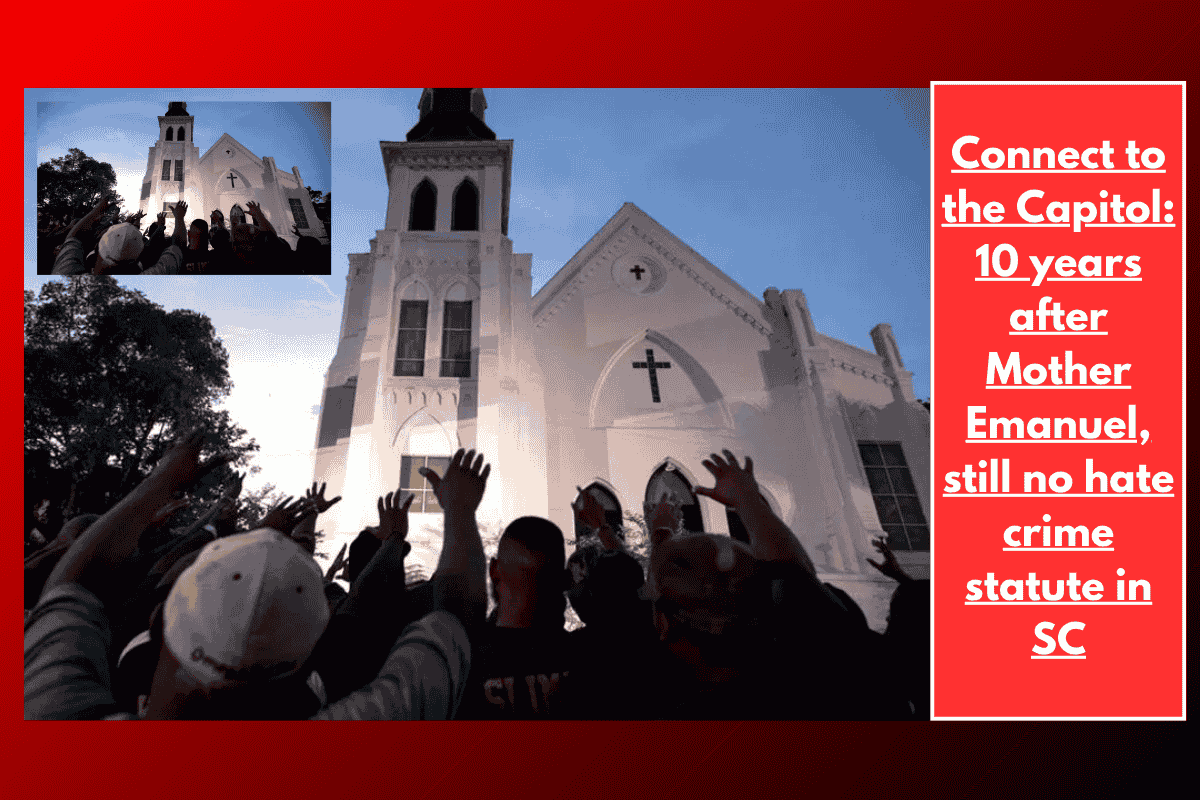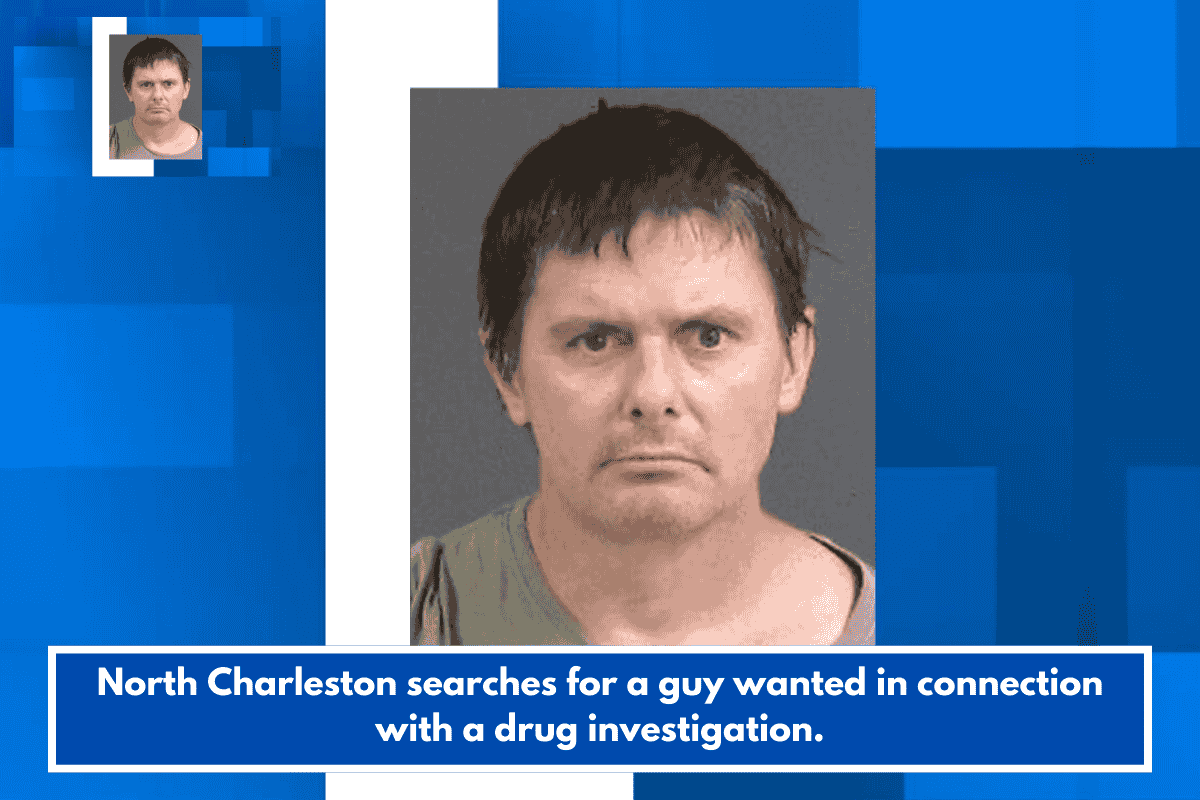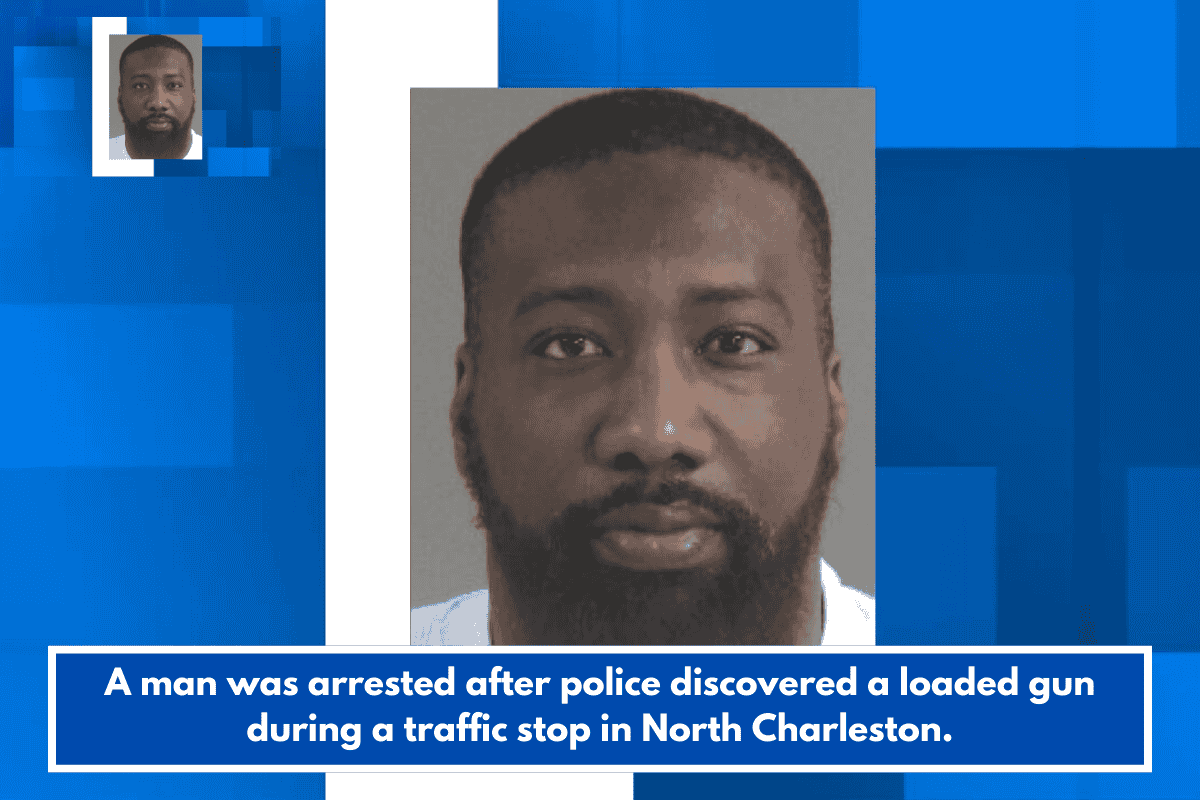COLUMBIA, S.C. – This week’s Connect to the Capitol explores the ongoing impact of the 2015 Mother Emanuel AME Church shooting in Charleston, South Carolina, and looks at what has and hasn’t changed in the state ten years later. On the anniversary of that tragic day, people gathered to honor the nine victims killed during a Bible study session and to reflect on efforts toward racial justice and safety.
Reflecting on the Tragedy at Mother Emanuel
This Tuesday, members of the community gathered at the Mother Emanuel AME Church to honor the nine Black lives lost in the shooting, which was a racially charged act of violence. Nine church members were killed by a white supremacist who sat through the Bible study with them before opening fire as the group bowed their heads in prayer. The sanctuary still retains its deep red carpet, a poignant reminder of the history that unfolded within its walls.
Wendy Cox, CEO of the Lowcountry Swim School, pointed out the importance of everyone—especially visitors—understanding how to stay safe when near bodies of water, whether it’s in a pool, lake, or the ocean.
No Hate Crime Law in South Carolina
As survivors and families continue to push for justice, one glaring issue remains: South Carolina is still one of only two states in the U.S. without a hate crime law. This remains a point of frustration for those who continue to advocate for legislative action. Despite this, conversations continue about how to prevent future tragedies, and lawmakers are working to address safety concerns.
Closing the “Charleston Loophole” in Gun Laws
In an effort to prevent future tragedies like the one at Mother Emanuel, South Carolina Democrats hosted a town hall focused on closing the “Charleston Loophole” in the state’s gun laws. Under current law, a gun sale can proceed even if a background check takes longer than three business days. The shooter in the Mother Emanuel attack was able to obtain his weapon because of this loophole.
Former U.S. Congresswoman Gabby Giffords, her husband, Sen. Mark Kelly, and state lawmakers such as Sen. Deon Tedder and Sen. Ed Sutton participated in the discussion, pushing for reform. U.S. Rep. Jim Clyburn has also introduced a proposal to extend the background check window from three to ten days, mirroring the standard used by the FBI.
South Carolina Governor’s Race Heats Up
The race for South Carolina governor is starting to take shape, even though official filing won’t begin until early 2026. South Carolina Attorney General Alan Wilson is expected to launch his campaign soon, with a primary likely to involve a competitive race for President Donald Trump’s endorsement. Rep. Nancy Mace, Lt. Gov. Pam Evette, and Sen. Josh Kimbrell are also expected to be key players in the race.
On the Democratic side, Rep. Jermaine Johnson has announced his exploratory campaign for governor, advocating for economic opportunity, education reform, and criminal justice reform.
Energy Security for South Carolina’s Future
As the state’s population grows, Gov. Henry McMaster has made energy security a priority. The Energy Security Act, signed into law, promises to meet the power needs of South Carolina’s rapidly growing population. This includes plans to build a 2,000-megawatt natural gas plant and work toward energy efficiency to support industrial growth. While the law has garnered support, some critics have raised concerns about data centers consuming too much energy and raising costs for residents.
South Carolina Redistricting Case in the Supreme Court
Finally, South Carolina’s Supreme Court will hear oral arguments regarding a case that challenges the state’s Congressional district maps. The ACLU of South Carolina and the League of Women Voters argue that the maps were gerrymandered to favor one political party, a practice that violates the Constitution. The outcome of the case, which is centered on partisan gerrymandering, could have significant implications for future elections in the state.














